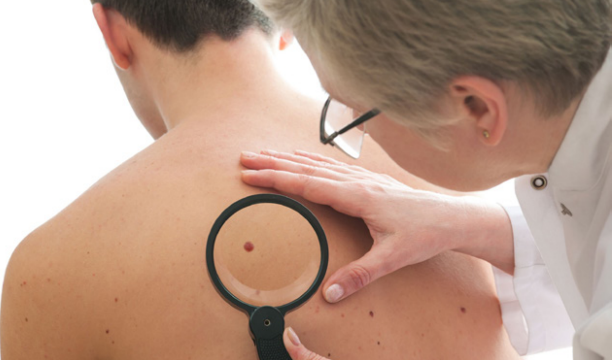Vitamin B3
Vitamin B3 (nicotinamide) is potentially an easy and inexpensive treatment for treating solar keratoses and preventing certain types of skin cancer.

What it is
Vitamin B3 (nicotinamide or niacinamide) has been shown to be an effective way of treating solar keratoses (“sun spots”). There is also evidence that vitamin B3 can prevent common skin cancers.
How does it work?
Exposure to ultraviolet (UV) radiation in sunlight increases the risk of skin cancer by:
- damaging the DNA in skin cells, and
- suppressing the immune system’s anti-cancer response
The immune system response can be affected by a very small amount of UV radiation — as little as six minutes’ sun exposure on a sunny day in summer.
Vitamin B3 protects against this immune system suppression.
It does not prevent damage to the skin cells caused by UV radiation, so it’s still very important to stay sun smart and avoid excessive exposure to sunlight when the UV index is greater than 3.
How to take vitamin B3
The effective dose of vitamin B3 is 500mg daily.
Please note:
- Multivitamins and B-complex preparations do not contain this much vitamin B3
- It’s important to take the correct form of vitamin B3. Make sure the tablets are nicotinamide or niacinamide and not nicotinic acid/niacin, which may cause side effects
- The correct form of vitamin B3 comes as 500mg tablets. Take one per day.
Vitamin B3 is also effective when used directly on the skin. It is available in some sun screens and skin creams.
How effective is vitamin B3 for treating solar keratoses or preventing skin cancer?
Research has shown that vitamin B3 (nicotinamide) 500-1000mg per day, taken orally, was effective in a group of patients with significantly sun damaged skin. The observed effects were:
- Solar keratoses were reduced by a third, and
- Development of new non-melanoma skin cancers (basal cell carcinoma and squamous cell carcinoma) was reduced by about 20-30 per cent (and up to 75 per cent in an earlier study).
Further research is underway to determine the benefits of vitamin B3 in people with different skin types.
Vitamin B3 is not a cure for solar keratoses. People with solar keratoses should use one of the other treatments such as a prescription cream or cryotherapy (freezing) in conjunction with vitamin B3 for the best results.
Vitamin B3 does not protect against sunburn. It is not a substitute for sunscreen and other protective measures to reduce UV exposure.
Side effects
Side effects from nicotinamide are uncommon at the recommended dosage of 500mg per day. Some people experience an upset stomach, nausea or diarrhoea.
Vitamin B3 taken as nicotinic acid commonly causes unpleasant hot flushes.